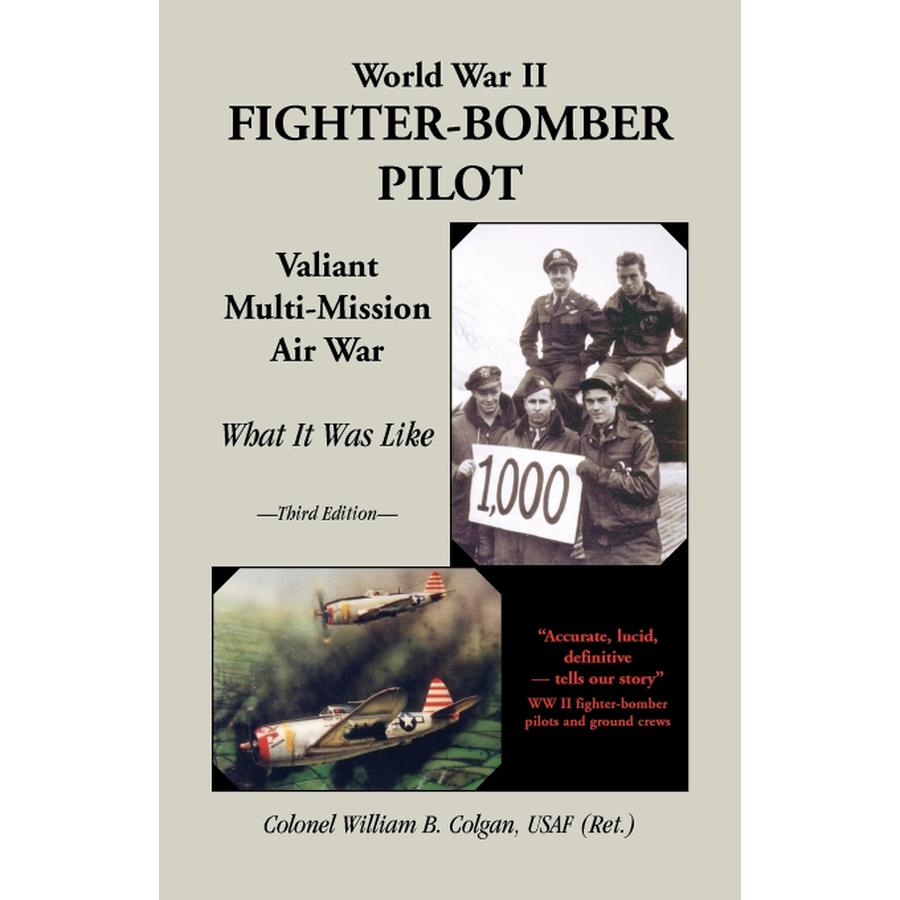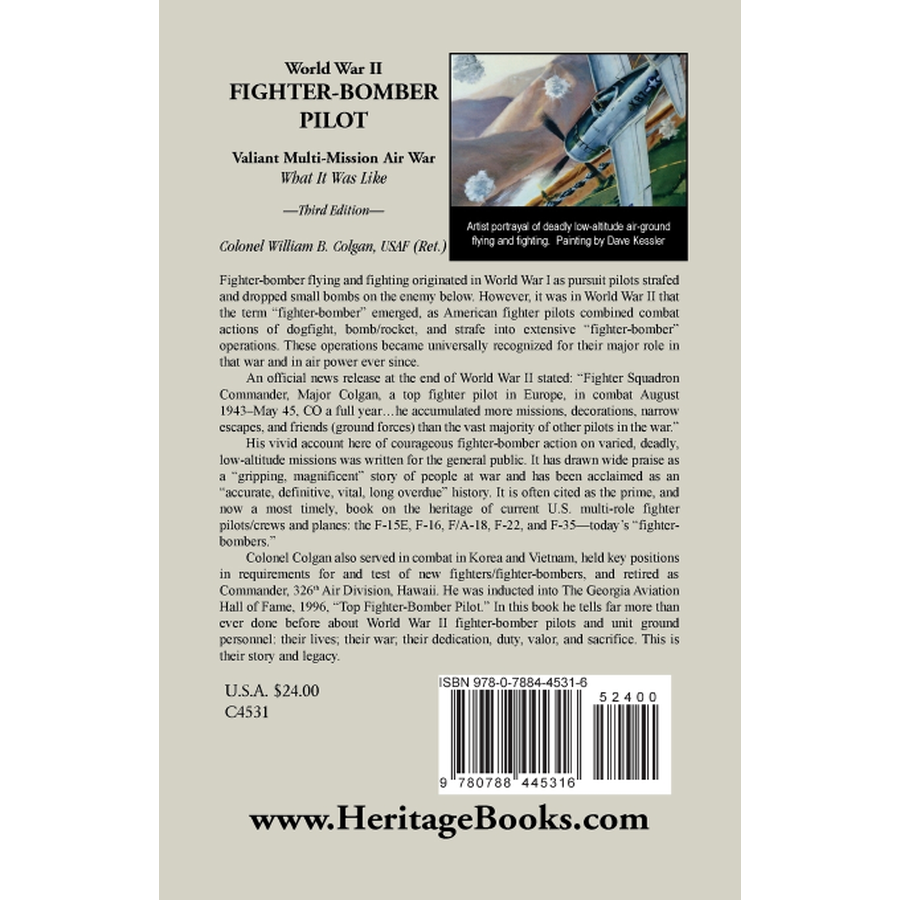World War II Fighter-Bomber Pilot, Valiant Multi-Mission Air War: What it Was Like, 3rd Edition
Couldn't load pickup availability
Fighter-bomber flying and fighting originated in World War I as pursuit pilots strafed and dropped small bombs on the enemy below. However, it was in World War II that the term "fighter-bomber" emerged, as American fighter pilots combined combat actions of dogfight, bomb/rocket, and strafe into extensive "fighter-bomber" operations. These operations became universally recognized for their major role in that war and in air power ever since.
An official news release at the end of World War II stated: "Fighter Squadron Commander, Major Colgan, a top fighter pilot in Europe, in combat August 1943-May 45, CO a full year…he accumulated more missions, decorations, narrow escapes, and friends (ground forces) than the vast majority of other pilots in the war." His vivid account here of courageous fighter-bomber action on varied, deadly, low-altitude missions was written for the general public. It has drawn wide praise as a "gripping, magnificent" story of people at war and has been acclaimed as an "accurate, definitive, vital, long overdue" history. It is often cited as the prime, and now a most timely, book on the heritage of current U.S. multi-role fighter pilots/crews and planes: the F-15E, F-16, F/A-18, F-22, and F-35-today's "fighter-bombers."
Colonel Colgan also served in combat in Korea and Vietnam, held key positions in requirements for and test of new fighters/fighter-bombers, and retired as Commander, 326th Air Division, Hawaii. He was inducted into The Georgia Aviation Hall of Fame, 1996, "Top Fighter-Bomber Pilot." In this book he tells far more than ever done before about World War II fighter-bomber pilots and unit ground personnel: their lives; their war; their dedication, duty, valor, and sacrifice. This is their story and legacy.
William B. Colgan
(1988), 2008, 5.5" x 8.5", paper, 232 pp.
ISBN: 9780788445316
101-C4531

